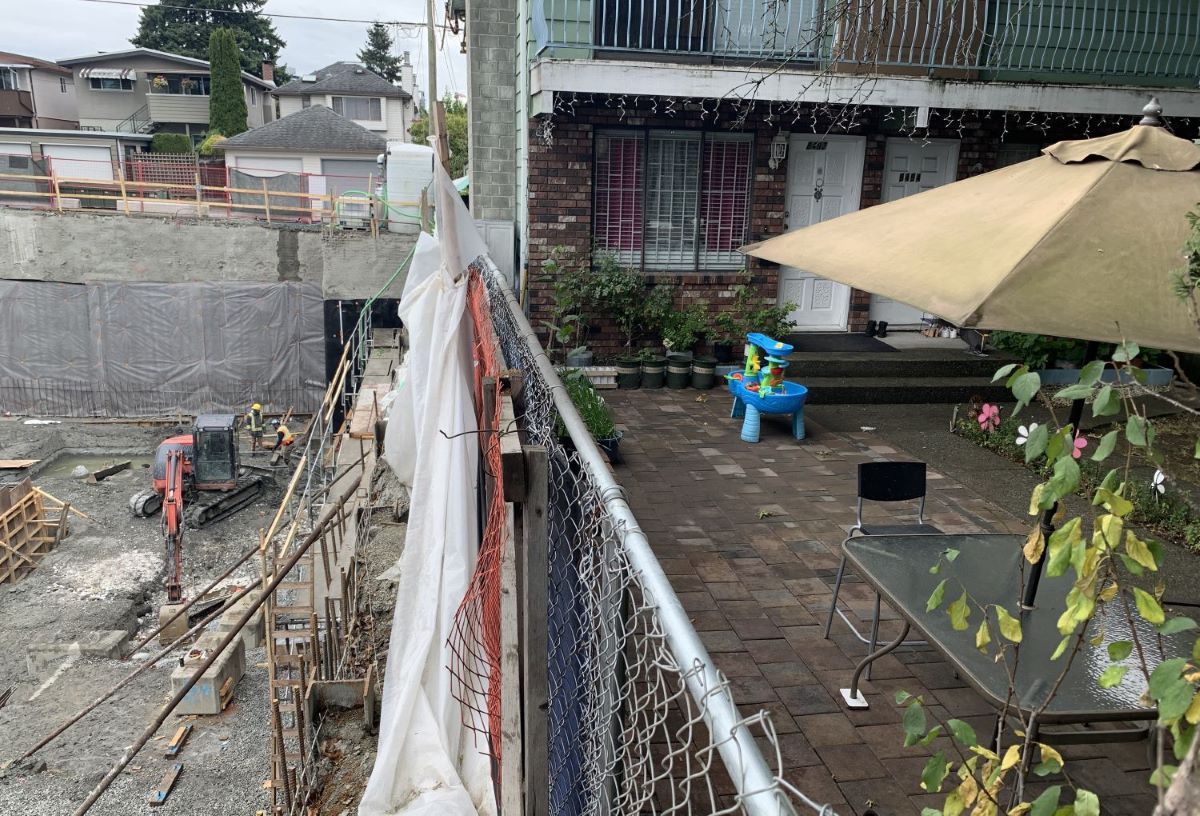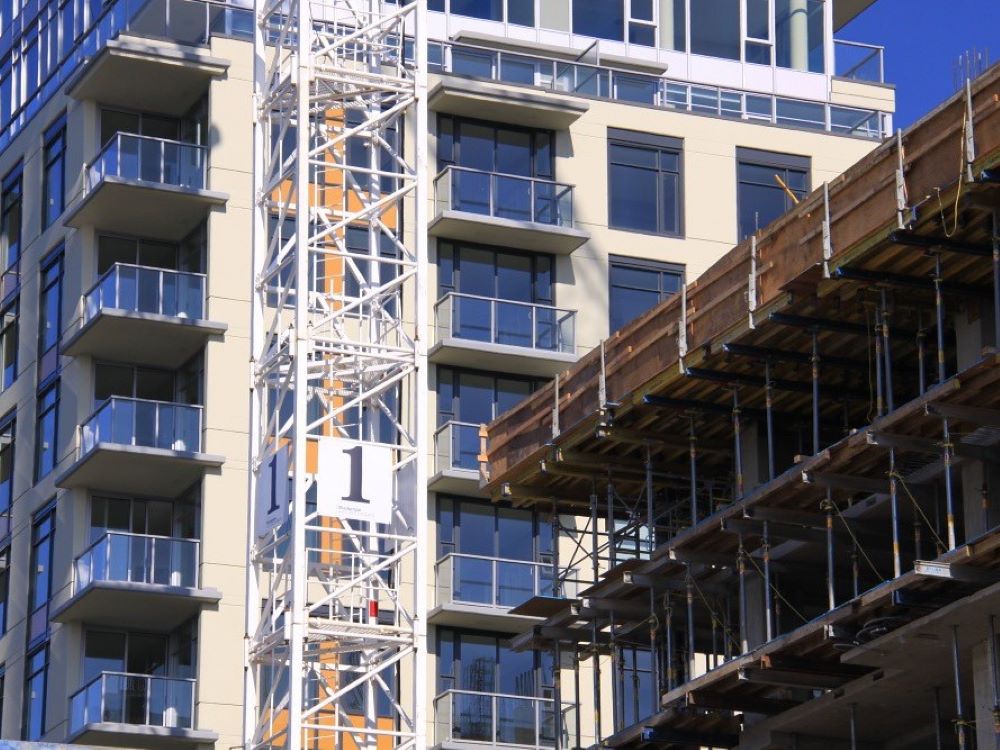Heading into budget planning, Metro Vancouver approved a proposal to hike development cost charges to shift the burden of paying for much-needed upgrades for sewage and water treatment facilities from property owners to developers and new homebuyers.
It’s a bad idea.
With eroding infrastructure and an expanding population, Metro Vancouver, a partnership of 21 municipalities, from Maple Ridge and Langley to the coast, does need to raise revenue to pay for updating and expanding infrastructure.
According to its estimates, the regional government needs almost $35 billion for capital expenses related to water, liquid waste and parks over the next 30 years.
The hikes to development cost charges are expected to cover nearly the entirety of $11.5 billion needed to pay for new infrastructure related to growth over 30 years.
The development cost increases vary depending on development type and location but represent huge increases across the board. Once fully implemented in 2027, the overall average cost of development cost charges for single-family lots, town houses and purpose-built rental overs by 2027.
Charges for single-family lots would go from $10,027 now to $34,133; for townhouses they would go from $8,679 now to $30,861; and for purpose-built rental apartments they would increase from $6,249 per unit to $20,906.
Hiking housing costs in a crisis
Increasing development cost charges will push construction costs higher at a time when they have been soaring. According to a recent RBC analysis, construction costs have jumped 51 per cent since the start of the pandemic.
Interest-rate hikes have also pushed the cost of financing construction higher and eroded investment in new housing. A report by economist David Macdonald found that investment in new residential housing construction is lower than it was at the peak of the pandemic economic shutdown. Investment in single-family homes is down 36 per cent when compared to Feb. 2022 just before interest rate hikes started, semi-detached house starts declined by 27 per cent, new row home construction saw a mild decline of two per cent and apartment building starts fell by 19 per cent.
The Canadian Mortgage and Housing Corp. expects home completions to plunge by 32 per cent compared to last year.
With B.C. facing a severe housing shortage, hiking development cost charges could slow new housing construction and leave more and more people bidding against each other for housing as population growth further outpaces the number of new homes being built.
The City of Vancouver already has some of the highest construction costs in the country. Before the increases were approved, according to a CMHC analysis from last year, development cost charges ranged from 2.1 per cent to 6.8 per cent of the cost of building a home, depending on the type of housing. When adding other government charges like density payments, permit fees, municipal fees and guarantee fees, it accounts for 8.1 per cent to 20.4 per cent of the cost of building a home, depending on the type of housing (excluding single-detached housing which is 3.7 per cent).

The hike in development cost charges will add to the costs developers face and will be passed on to homebuyers and renters. An independent analysis commissioned by Metro Vancouver found that by the time development cost charge hikes have reached their peak in 2027 they could push up land values, profit margins on new developments, unit prices and rents by nearly half of the amount they have increased over the past year. (I was unable to find the exact percentage as the direct findings of the independent analysis are not available.)
Who should pay for growth?
The report from Metro’s financial services department justified hiking development cost charges using the principle of “growth paying for growth,” which has been encouraged by most Metro Vancouver board members for years. The sentiment seems reasonable, but it perpetuates a cycle of new residents paying more and more for housing.
Local governments have a history of opting to use development cost charges rather than property taxes to fund infrastructure to support new development, according to University of Western Ontario professor Andrew Sancton. Development cost charges are often used in a politically convenient way to win the support of property owners for new growth.
The new development cost charge scheme doubles down on the pattern. Before the change, existing property owners were expected to pay 82.5 per cent of new sewage infrastructure costs and 50 per cent of related costs of Metro’s new water infrastructure fee.
After the changes are fully implemented, the costs will be almost entirely shifted to new construction.
Instead of relying on development charges applied on a regional basis, Metro Vancouver could revert to the practice of having local governments pay for the cost of new infrastructure associated with development. Property taxes are broken up into different portions with money going to the municipality, schools through the province, TransLink, BC Assessment, the Municipal Finance Authority and a small percentage going to regional governments like Metro Vancouver.
For example, in Vancouver, where the overall property tax rate is 0.28 per cent, the city gets 57 per cent, the province gets 33 per cent and the remainder goes to Metro Vancouver and the others.
In a report on upzoning Metro Vancouver’s low-density neighbourhoods for affordability, Marc Lee argued raising property taxes, which have remained low, and shifting the burden away from new development would be more equitable.
Is it too late to stop the change?
Before Metro Vancouver approved the increases plan, federal Housing, Infrastructure and Communities Minister Sean Fraser wrote a letter to Metro Vancouver’s mayors, management and board members, asking for the policy change to be delayed for at least a year.
The month before, Fraser postponed more than $138 million in Housing Accelerator Fund support to Surrey and Burnaby, the second and third largest cities in B.C., citing the increased development cost charges as hampering new development.
The threat of losing funding did not stop Metro Vancouver from approving the plan. But it still needs to be approved by the provincial government.
With housing affordability a key issue, the provincial government could step in to stop the hike as it needs to be approved by the Inspector of Municipalities.
That would be in line with an expert panel report for the provincial and federal governments titled “Opening Doors: Unlocking Housing Supply for Affordability” published just over two years ago. The expert panel identified development fees as a challenge and recommended that they should only pay for infrastructure required due to growth.
However, it looks like the province won’t intervene. Housing Minister Ravi Kahlon said just before the plan was approved that the final decision is up to the mayors and that if Fraser is concerned about increased development fees, Ottawa should cough up more infrastructure funding. ![]()
Read more: Housing

















Tyee Commenting Guidelines
Comments that violate guidelines risk being deleted, and violations may result in a temporary or permanent user ban. Maintain the spirit of good conversation to stay in the discussion and be patient with moderators. Comments are reviewed regularly but not in real time.
Do:
Do not: